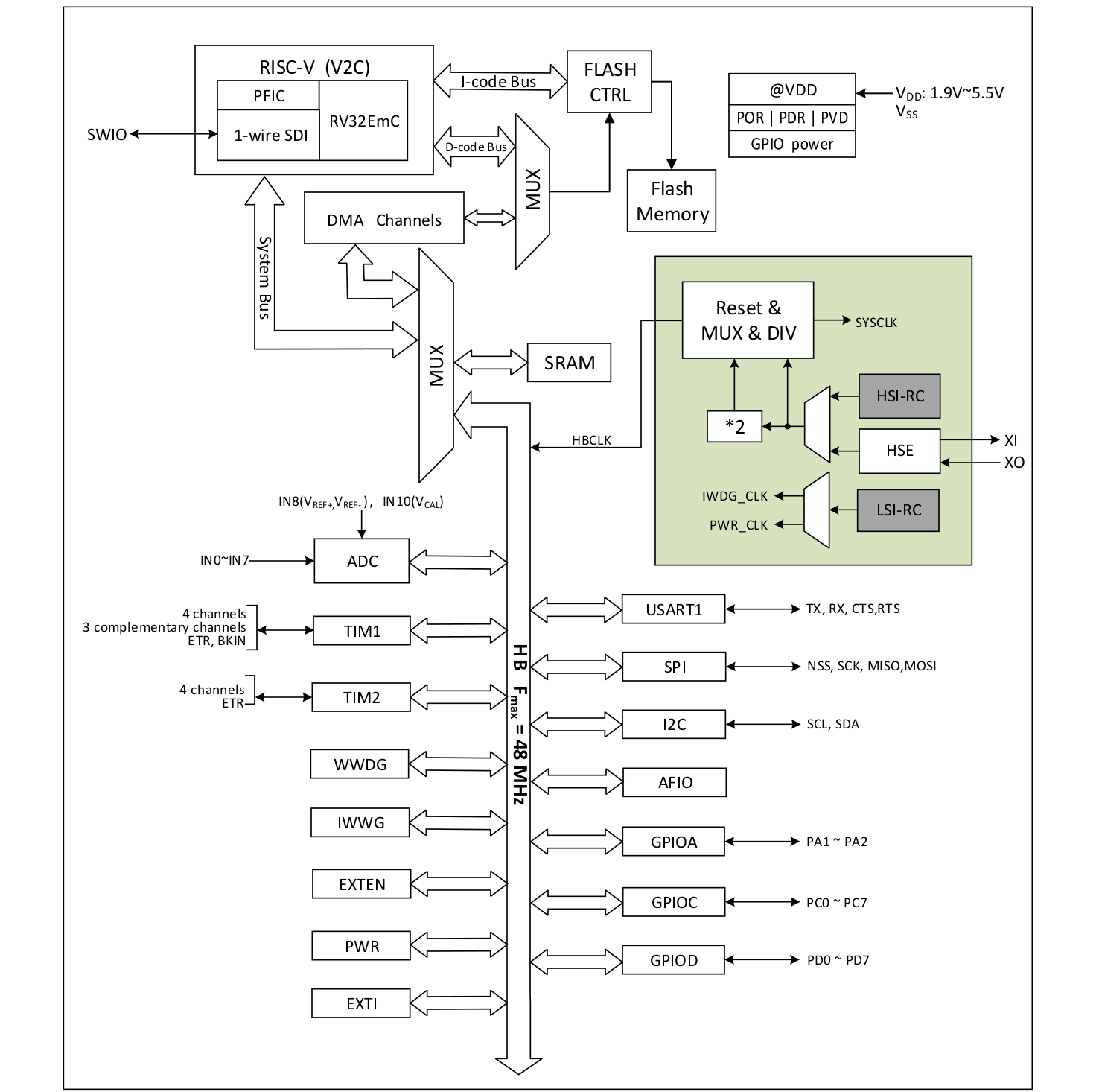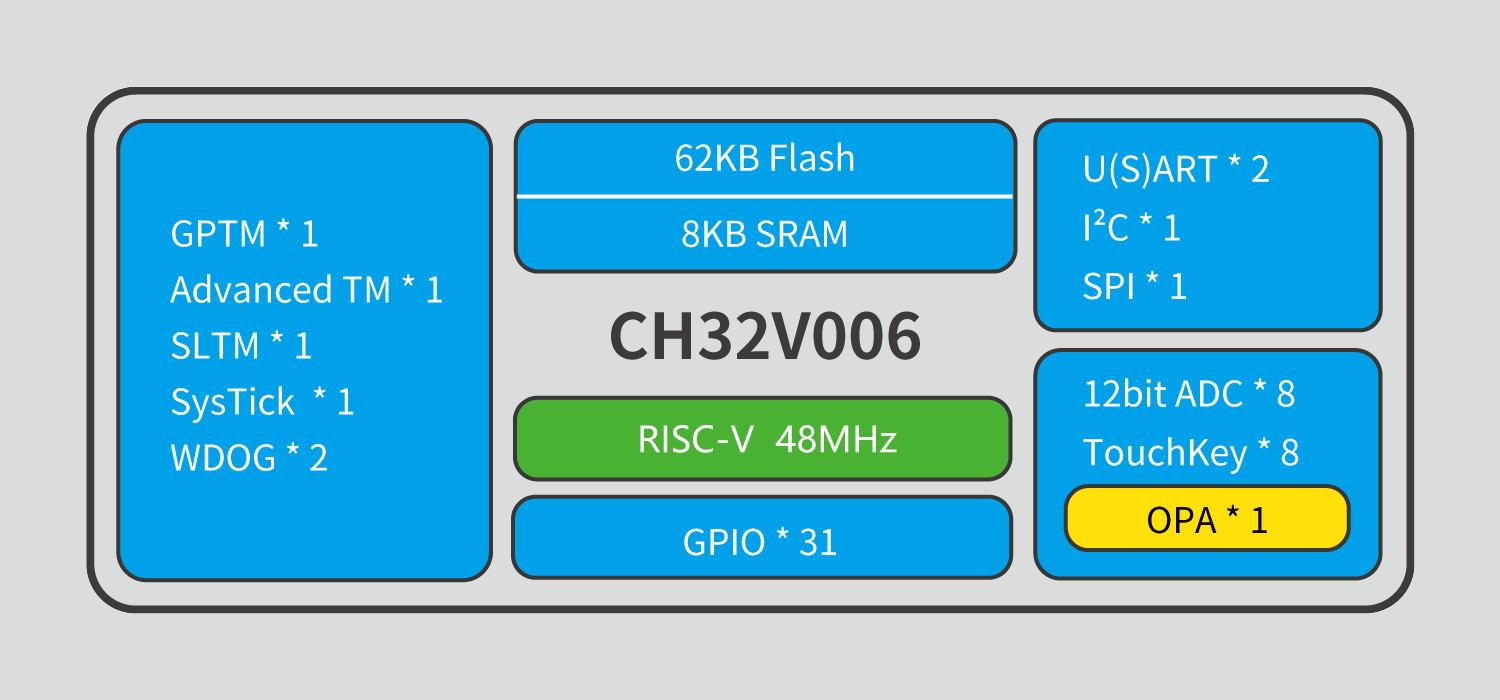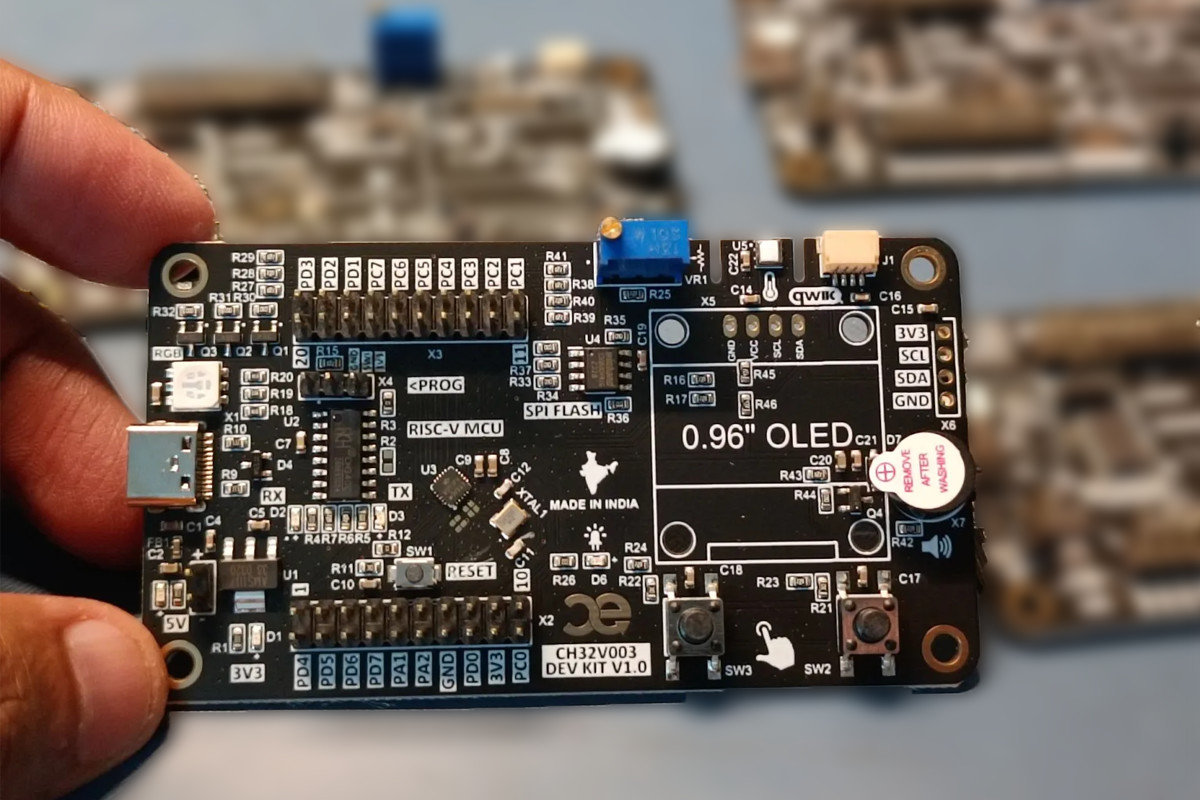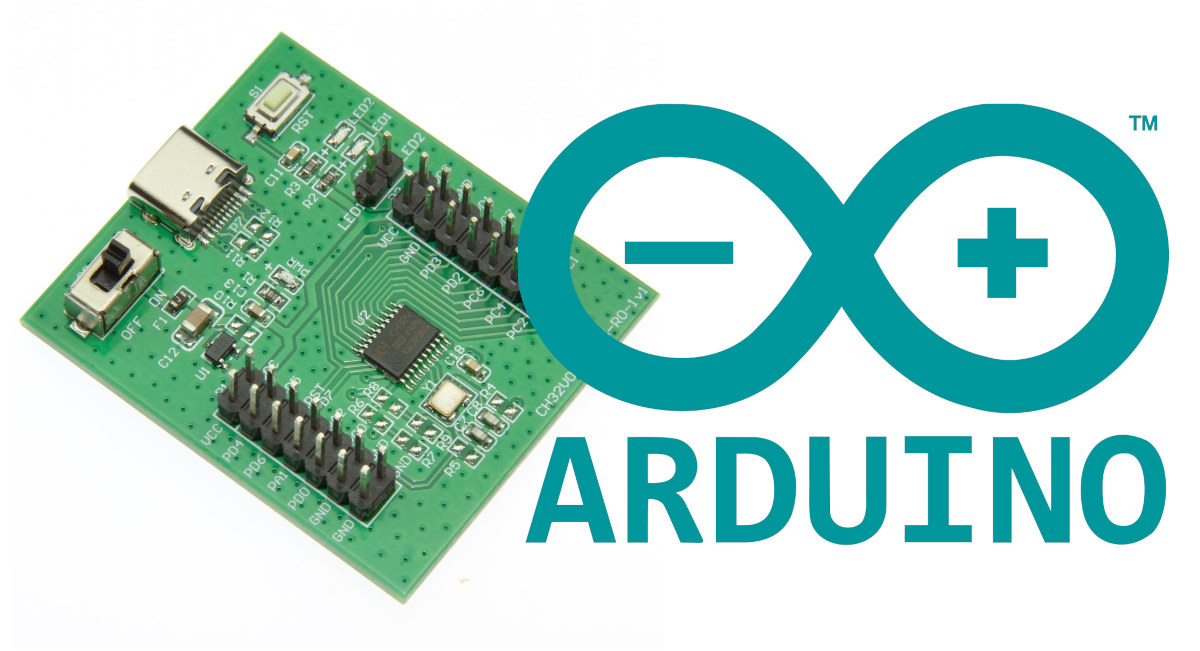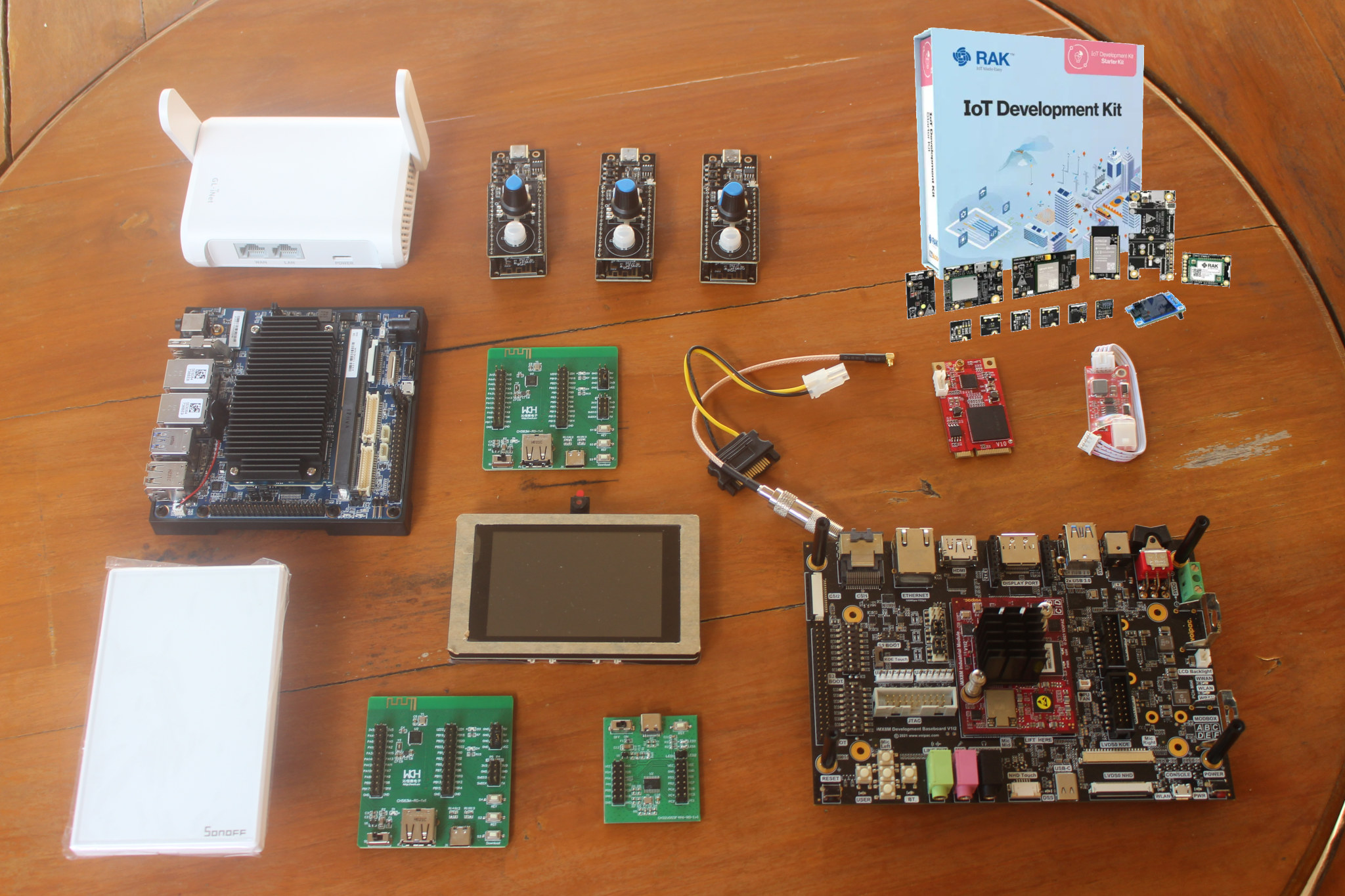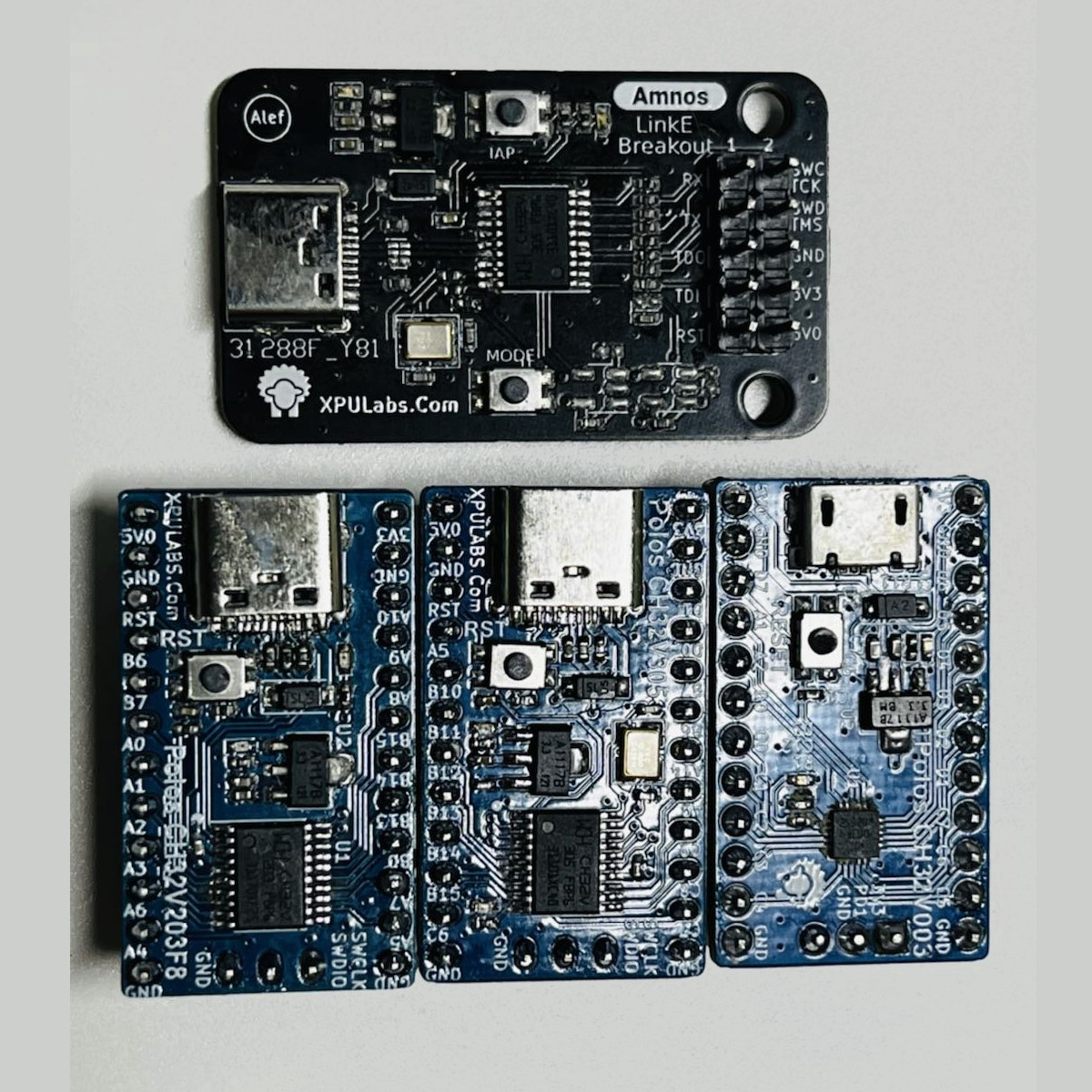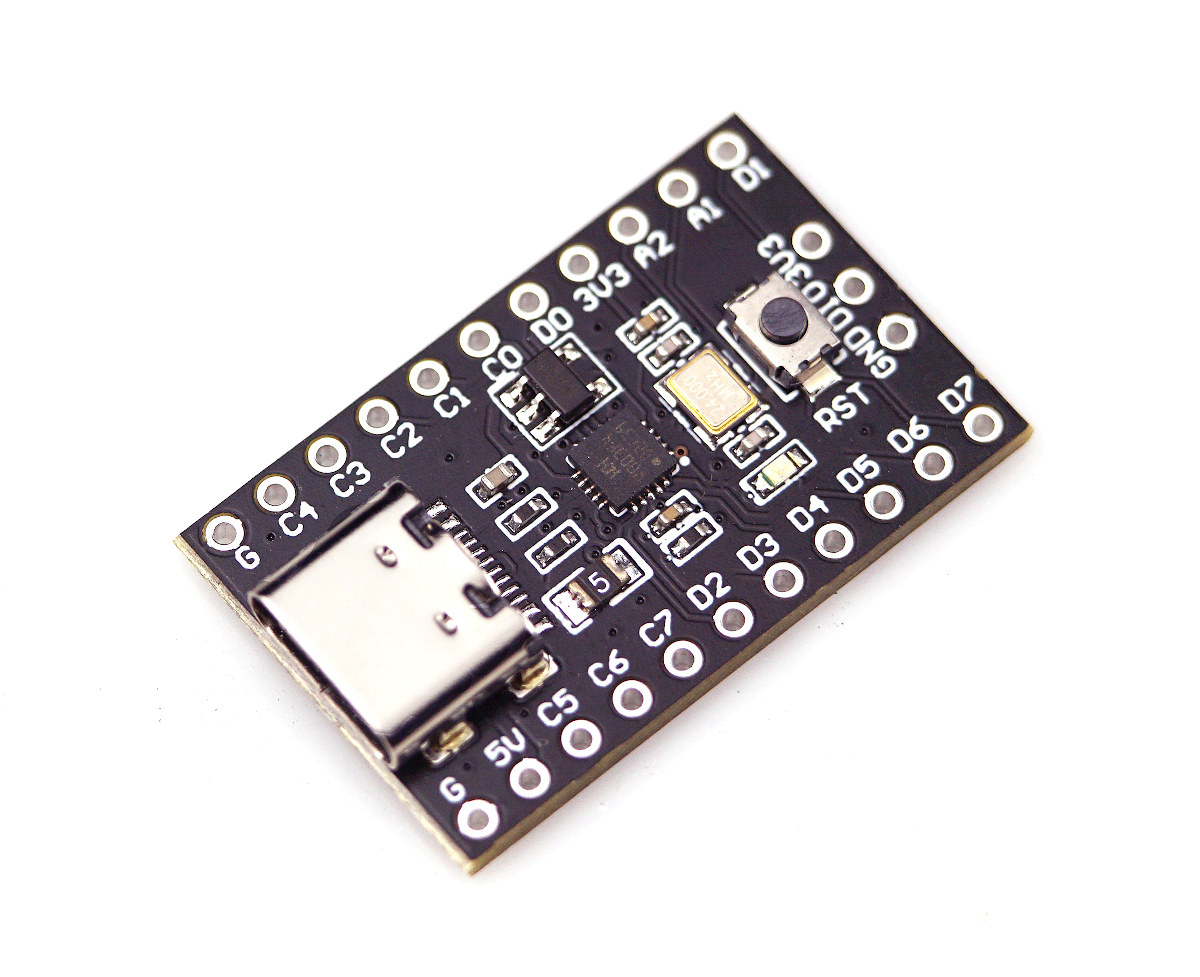WCH CH32V002 is an industrial-grade general-purpose 32-bit RISC-V microcontroller that is pin-to-pin compatible with the popular CH32V003 MCU with 4KB SRAM instead of 2KB, a wider input voltage range from 2V to 5V, and other improvements. Earlier this month we wrote about the WCH CH32V006 RISC-V microcontroller that offers an upgrade to the CH32V003 with more I/Os, memory, and storage, requiring a new PCB layout. But now, the Chinese company has unveiled a pin-compatible alternative with the CH32V002 that adds more SRAM, uses the new V2C core with RV32EmC instruction set (also used in the CH32V006), offers a larger bootloader and configuration memories, upgrades the ADC to 12-bit, and adds support for 8-channel touch-key channel detection. WCH CH32V002 specifications (highlights in bold show differences against the CH32V003): CPU – 32-bit “RISC-V2C” core up to 48 MHz using RV32EmC instruction set Memory – 4KB SRAM Storage – 16KB flash, 3328 Bytes […]
WCH CH32V006 RISC-V microcontroller adds more I/Os, memory, and storage compared to CH32V003
WCH CH32V006 RISC-V microcontroller is an upgrade to the 10-cent CH32V003 microcontroller with more I/Os, up to four times the memory, storage, a wider supply voltage range, the addition of a TouchKey interface, as well as a new 32-bit V2C RISC-V core instead of the V2A core found in the CH32V003. More specifically that means we went from the CH32V003 with 2KB SRAM and 8KB flash, up to 8KB SRAM and 62KB for the CH32V006, and 6KB SRAM and 32KB flash for the CH32V005, a smaller sibling of the new RISC-V microcontroller. WCH CH32V005 & CH32V006 specifications (with highlights in bold to show differences against CH32V003): CPU – 32-bit “RISC-V2C” core up to 48 MHz Memory – 6KB SRAM (CH32V005) or 8KB SRAM (CH32V006) Storage – 32KB flash (CH32V005) or 62KB flash (CH32V006) Peripherals Up to 31x GPIO with interrupt support (CH32V003 had up to 18x GPIO) 2x USART interfaces […]
CAPUF Embedded CH32V003 RISC-V Dev Kit features USB-C, temperature/humidity monitoring, OLED & more
CAPUF Embedded CH32V003 Dev Kit is an all-in-one development board with a USB-C interface, onboard sensors (temperature/humidity), an OLED display, SPI NOR Flash, and ample I/O options. Additionally, it features a Qwicc connector, an RGB LED, and a 3-pin header to connect the WCH-link programmer providing further flexibility for your projects. After the initial release of this “10 cents” CH32V003 RISC-V microcontroller, we have seen $1.5 development boards and an open-source GGC toolchain, as well as Arduino support for the WCH RISC-V microcontrollers. Very recently, CNLohr even managed to transmit LoRa packets with this MCU. CAPUF Embedded CH32V003 Dev Kit Specifications: MCU – WCH CH32V003F4U6 32-bit RISC-V2A microcontroller up to 48 MHz with 2KB SRAM, 16KB flash (QFN20 package) USB – 1x USB-C Port for Power (5V) and Serial Interface with onboard USB to UART converter I/Os – 20 Pin MCU IOs with USART, I2C, SPI, ADC Program & Debugging – […]
LoLRa project – Transmitting LoRa packets without radio using CH32V003, ESP8266, or ESP32-S2 MCU
The LoLRa project is a firmware-only LoRa transmission open-source project that works without a Semtech radio and instead relies on an I2S or SPI interface (so not exactly bit-banging) to transmit data with microcontrollers such as WCH CH32V003, or Espressif Systems ESP8266 and ESP32-S2 microcontrollers. LoRa is a proprietary protocol by Semtech, but people have been trying to reverse-engineer the LoRa PHY for years, and this culminated with a LoRa GNU Radio SDR implementation last year. But CNLohr found out you don’t even need a radio to send LoRa packets and you can instead use SPI or I2S interfaces from general-purpose microcontrollers to send packets that can be decoded by commercial off-the-shelf LoRa gateways and other chips. The current implementation is designed for the ITU Region 2 (aka The Americas) targeting the 902-928MHz frequency band, but the code could be changed for Region 1 (EU, Russia, Africa) to target 863-870MHz […]
WCH RISC-V microcontrollers can now be programmed with the Arduino IDE
WCH has launched some interesting RISC-V microcontrollers in the last year or so, including the “10 cents” CH32V003 RISC-V microcontroller with 2KB SRAM and 16KB flash or the CH32V307with more resources (up to 64KB SRAM and 256KB flash) and additional peripherals. So far they were programmable in C language using MounRiver IDE or an open-source toolchain, but WCH has now announced Arduino support for many of those RISC-V microcontrollers which should enable more people to get involved. The core library for CH32duino works with OpenOCD through WCH-LINKE hardware to download the firmware and debug WCH chips and a riscv-none-embed-gcc toolchain that supports custom RISC-V instructions (half-word and byte compression instruction extensions and hardware stack push/pop functions) found in WCH RISC-V microcontroller. The following evaluation kits are currently supported with ADC, DAC, USART, GPIO, EXTI, SysTick, I2C, and SPI peripherals: CH32V003F4P EVT board CH32V203G8U EVT board CH32X035G8U EVT board CH32V103R8T6_BLACK EVT […]
Giveaway Week 2023 winners announced!
CNX Software’s Giveaway Week 2023 is now over and we’re ready to announce the winners. We offered some of the review samples we tested (or not) in the last year, and like the last two years, we were also joined by RAKwireless who offered two IoT development kits. All items given away are shown in the photo below, minus some accessories, and if you count more than seven you’d be right, as some are kits with multiple items like the GL.iNet GL-S200 Thread Border router which comes with three development boards, and more importantly, we also organized Giveaway Week on CNX Software Thailand for the second year running. We had seven winners on CNX Software: VOIPAC iMX8M industrial development kit – Kraingsak, Thailand TBS7901 mini PCIe DVB-S2X/S2 module – Frank, Singapore RAKWireless WisBlock IoT Starter Kit – Andy, Russia GL.iNet GL-S200 Thread Border router kit – Augustin, Argentina WCH CH583M-R0-1v1 […]
Polos CH32Vxx 32-bit RISC-V MCU boards starts at $1.99
XPU Labs, a subsidiary of AnalogLamb, has designed three inexpensive “Polos” development boards based on WCH CH32VXX RISC-V microcontrollers with pricing starting at just $1.99. The three development/breakout boards have the same form factor and only differ in the specific RISC-V MCU used with three parts selected: the 48 MHz CH32V003F4U6 microcontroller, the 144 MHz CH32V203F8P6 MCU, and the CH32V305FBP6 that’s similar to the former but add more memory (32KB) and flash (128KB). You can see also three boards side-by-side in the photo below along with the Amnos LinkE CH32Vxx debugger & programmer board. Polos CH32V003 Breakout Alef specifications: MCU – WCH CH32V003F4U6 QingKe 32-bit RISC-V2A microcontroller up to 48MHz with 2KB SRAM, 16KB Flash (QFN20 Package) USB – 1x Micro USB port I/Os – 2x 12-pin headers with Up to 18 GPIOs with external interrupt support 1x USART, 1x I2C, 1x SPI 10-bit ADC Debugging – 1-wire serial debug […]
CH32V003 RISC-V MCU gets $1.5 development board, open source GCC toolchain and flasher utility
When we first wrote about the 10-cent CH32V003 RISC-V MCU it was offered in a $7 development board and the closed-source MounRiver Studio IDE had to be used for programming. But things have improved since October 2022, and now, you can buy a CH32V003 board for as little as $1.5 plus shipping, and an open-source GCC toolchain and flasher/downloader are now available. Let’s have a look at the hardware first with the low-cost nanoCH32V003 development board featuring a 48 MHz CH32V003 RISC-V microcontroller with 2KB SRAM and 16KB flash, a USB Type-C port for power, a reset button, and two rows of headers for the GPIOs. MuseLab nanoCH32V003 specifications: MCU – WCH CH32V003F4U6 32-bit RISC-V2A microcontroller up to 48 MHz with 2KB SRAM, 16KB flash (QFN20 package) Expansion – 2x 11-pin headers with up to 18x GPIOs, 1x USART, 1x I2C, 1x SPI, 8-channel 10-bit ADC, 5V, 3.3V, GND Debugging […]


